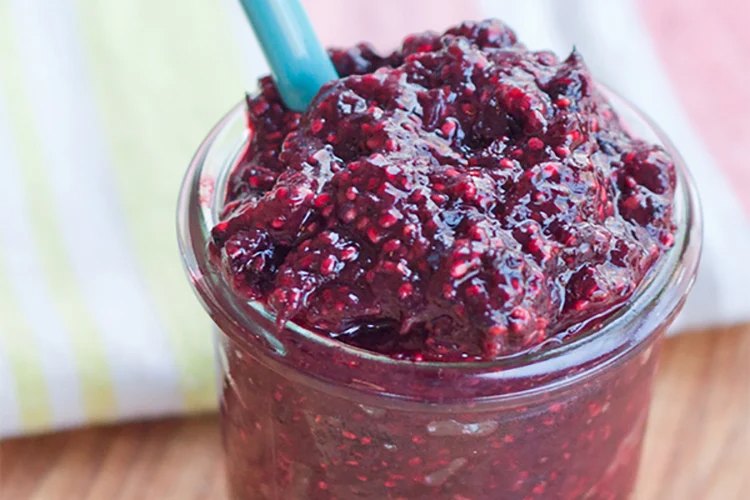Why you should have more Chia Seeds & How to Incorporate in Your Everyday Diet
The popularity of chia seeds has been soaring in the health industry. Claimed to be a ‘superfood’, many rave about their health benefits. Exactly how good are they in improving our health and should they be a part of our daily diet?

Chia seeds derive from the Salvia Hispanica plant, which originated from the United States and Mexico. They are the edible seeds of a flowering plant of the Mint family, grown and harvested by ancient Aztec civilisations. Even back in the olden days, it was considered a major and valuable food crop so important that it was even used as a form of payment!
BENEFITS OF CHIA SEEDS
Though small with a mere diameter of 1 to 2 mm, they are packed with several benefits. 60% of the oil in chia seeds is Alpha-linolenic acid (ALA). ALA is a naturally occuring compound made in our bodies, an omega-3 fatty acid that protects our cells and helps lower the risk of cardiovascular diseases, memory loss and promotes healthy skin and nerve function.
Chia seeds are also known for their high source of protein and essential amino acids for nutrition, including isoleucine, leucine and lysine.
These amino acids are necessary for cell renewal which aids our body to have a stable metabolic balance and energy production.
Chia seeds are also incredibly rich in antioxidants, which protects us from free radicals that may cause premature ageing and cancer! They allow our bodies to absorb nutrients more effectively, a natural alternative as opposed to supplements.
Packed with protein, these seeds support the growth and health of our hair, nails, muscle growth, hormone balance, and maintaining a healthy weight!
Do you know that if our diet lacks protein and amino acids, it could result in mood swings, loss of muscle and even poor concentration? For those seeking plant-based protein, chia seeds are one of the best options for you!
One fun fact: Chia seeds can absorb anywhere from 10 to 20x its weight in water! It’s because chia seeds have a high amount of mucilage, a type of soluble fibre that is gel-like!

Mucilage is found in many plants and when activated, it creates positive changes in the nutritional properties of chia seeds, making them even more beneficial for our health.
Mucilage serves as a catalyst for anti-nutrients, for instance, lowering the amount of phytic acid that impairs our body from the absorption of iron, zinc, and calcium. It helps prevent mineral deficiencies!
The sticky substance also aids in removing heavy metal and ‘vacuums’ our digestive tract. It’s a great ‘gut-cleanser’ for smooth bowel movements!
Time to say bye to constipation.
RECOMMENDED DAILY INTAKE & 3 ways to have chia seeds!
The recommended daily intake is 15g of chia seeds, approximately 1 tablespoon for adults.
My favourite thing is that they are extremely versatile and can be added into any meal of the day, asides from making chia seed pudding with mylk of your choice.
If you’re opting for a fuss-free method, simply add into your beverage, soups, yoghurt and smoothie. However, ensure that you soak them for at least 15 minutes before having them! Some ideas: include it in your water, tea or kombucha for a lil' high-fibre twist!
Chia seeds can also be used to substitute the pectin used to thicken jam. As the soaked seeds produce soluble fibre, you can replace the pectin to achieve the same jam consistency! Best part is that it is filling and helps with blood sugar regulation and digestion.
You can drizzle them onto your pancakes, replace your "sauce" in desserts or even stir them into oatmeal. YUM!

SECRET TO OUR WHOLEFOOD MOONCAKES
You can also find chia seeds in our Signature Wholefood Mooncakes!
We’ve made use of their amazing properties to create a ‘snow-skin’ texture that everyone is fond of.
Each mooncake contains 45% of the recommended chia seed daily intake, making it the perfect treat with many benefits.
Our wholefood mooncakes (which are oil-free too) are not only tasty, but also boosted with fibre, protein, antioxidants.
References
Gavin, J. (2019, March 20). Chia Seeds Health Benefits & Uses . Retrieved from Jessica Gavin: https://www.jessicagavin.com/chia-seeds-benefits-uses/
Kris Gunnars, L. S. (2022, April 12). 7 Enticing Health Benefits of Chia Seeds . Retrieved from Healthline: https://www.healthline.com/nutrition/11-proven-health-benefits-of-chia-seeds
Taylor, M. (2022, April 30). 5 Chia Seed Benefits You Should Really Know About. Retrieved from Self: https://www.self.com/story/chia-seeds-benefits
SkinnyMs. (2022, June 28). Mixed Berry Chia Seed Jam . Retrieved from SkinnyMs.: https://skinnyms.com/mixed-berry-chia-seed-jam/
Verival . (2021, April 14). How much chia seeds per day? . Retrieved from Verival: https://www.verival.co.uk/blog/breakfast/chia-seeds-per-day/



